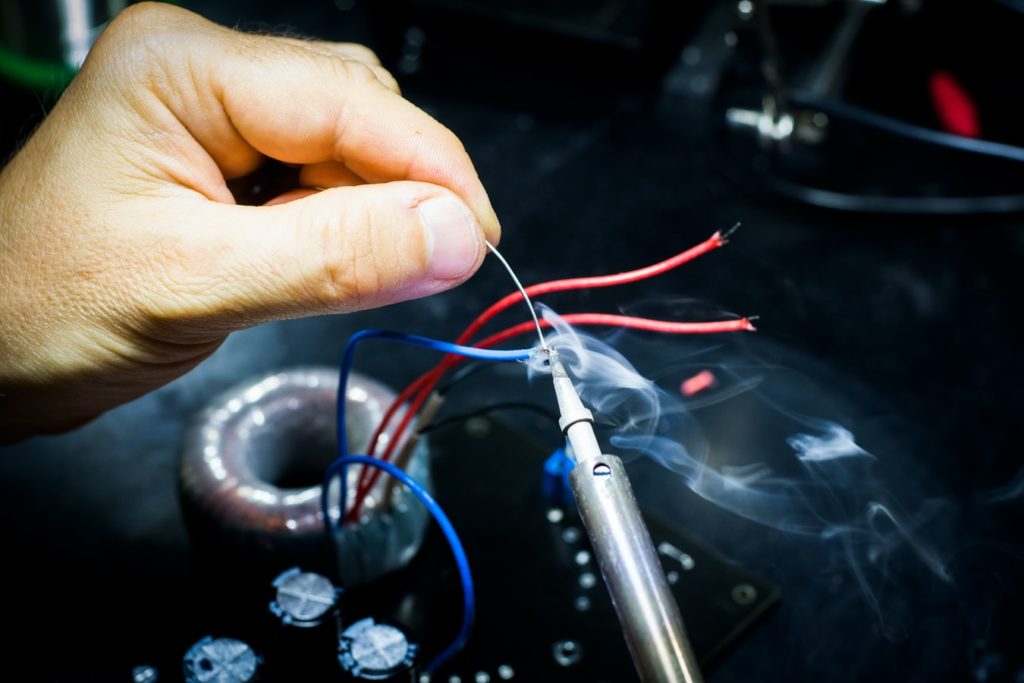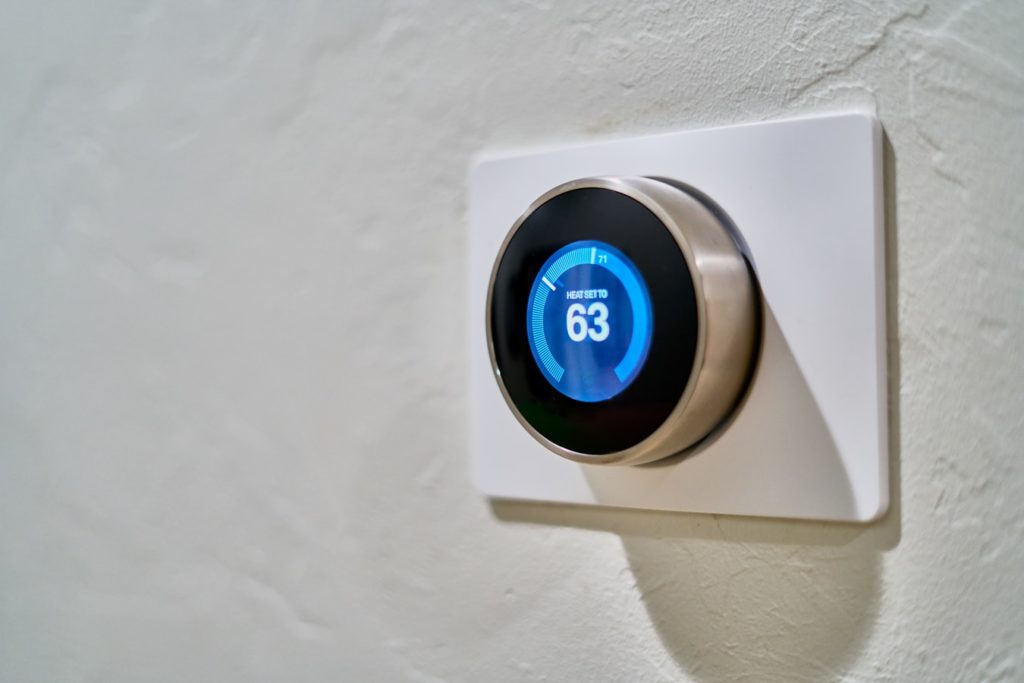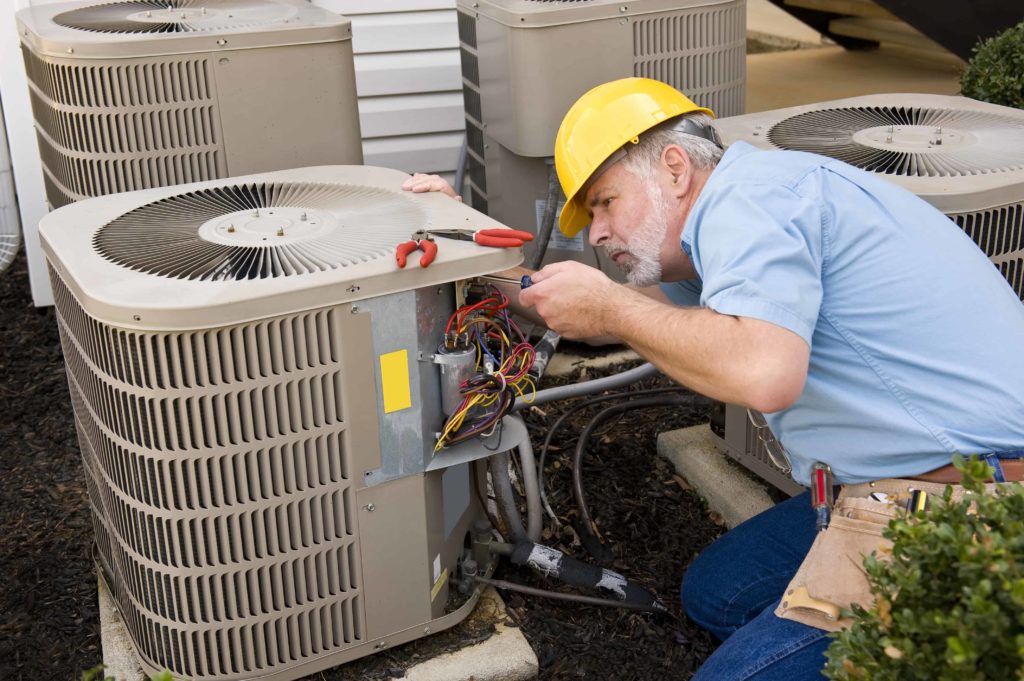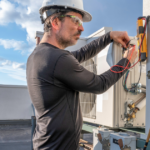An HVAC contractor is a professional skilled technician who keeps us cool in the summer and warm come wintertime. HVAC stands for Heating, Ventilation, and Air Conditioning. It is sometimes presented as HVAC/R with the R standing for Refrigeration.

These professionals are well trained in the different mechanical and electrical systems used to regulate the indoor temperature at buildings big and small, from the largest hospital or industrial facility, to a private home in the suburbs.
HVAC contractors are experts in heating, air conditioning and ventilation. Some contractors decide to focus their business on one main category, such as furnace/boiler heating systems or ventilating and duct cleaning services.
These professionals have the training to maintain and repair an HVAC system, or sell and install new components, depending on the customer’s situation. Selling new HVAC systems is an important part of the HVAC contractor’s job, so you’ll need good sales skills.
Further layers of specialization within this industry include water-based and solar-powered heating systems. These niche services can help you target a specific market, such as environmentally conscious consumers who want to reduce their carbon footprint by transitioning as much as possible to solar power for their HVAC needs.

You’ll be working indoors and outdoors in all kinds of conditions, while following safety standards for your work. This in-demand profession has excellent career prospects and earning opportunities, especially if you decide to start your own HVAC company. We’ll go over everything you need to know to train, get licensed and even start marketing your own profitable HVAC service business.
In this article you’ll learn:
- How much money you can make as an HVAC contractor
- The required training and certifications
- Professional groups to join
- Employment opportunities for HVAC contractors
- Finding clients
- Plus helpful tips
How much money can you make?
The average wage for heating, air conditioning, and refrigeration mechanics and installers is $48,730 annually, according to the US Bureau of Labor Statistics. Employment of HVAC contractors is projected to grow 13 percent through 2028, much faster than the average for all occupations. Commercial and residential building construction is expected to drive this employment growth, and job opportunities for HVAC/R technicians are expected to remain solid.
Training and Certification
There is no room for error in HVAC repairs and new installations. That’s why a license is required throughout the country to perform these services. Safety protocols are also a critical part of training because HVAC contractors work with high-voltage electricity and pressurized refrigerant systems containing gases for cooling the air.
License requirements are similar, but not identical, in most of the 50 states. You’ll need to check the specific requirements you live to be certain the training program you choose offers everything you need to be prepared for the license examination.
Here’s a comprehensive guide to licensure requirements for HVAC contractors in all 50 states.

What you’ll learn in training:
- How modern heating and cooling systems work
- Installing and maintaining/repairing heat pumps, furnaces, boilers, and central air conditioning systems.
- Correct and safe use of tools of the trade, including electronic instruments for reading voltages, gas pressures and taking other measurements.
- Safety on the job site, including emergency procedures and what to do to keep yourself and co-workers out of harm’s way.
- How to prepare successful bids on new projects.
- How to sell HVAC equipment to consumers.
That last point, above, merits more detail. One of the key roles of an HVAC contractor is selling new heating and cooling systems to customers whose equipment is worn out and beyond cost-effective repair. For many shops, selling HVAC equipment is vital to the profitability of the business, so sales skills will also be part of your toolkit. A new HVAC system represents a significant investment for the customer, so part of your job will be to sell the right equipment for the type and size of building.
Here’s an extensive list of HVAC schools and training programs you can review.
Professional Groups to Join
Joining a professional association shows your commitment to your career, opens opportunities for ongoing education in new equipment, repairs and installation tips, plus you can network with other pros to share information, including job openings. Here are some of the associations most relevant to HVAC contractors:

Air Movement and Control Association
The AMCA provides education, legislative protection, and standards for businesses and individuals who work in the air control industry. They are an influencer of national standards for design and installation of air conditioning units, having created documentation that covers benchmarks from duct-sizing to air conditioning sound levels. Members must sell AMCA scope products, so this is an association well-suited for HVAC/R professionals who sell full units.
American Society of Heating, Refrigerating and Air-Conditioning Engineers (ASHRAE)
Members of the ASHRAE include some of the most influential technicians, educators, and HVAC/R legislators in the United States. This is the largest HVAC/R organization, giving members access to education, certification, and collaboration across every part of the industry. Members can find research on topics like green energy systems and sound pollution. They also hold annual meetings that allow members from around the country to share insight and best practices for every area of HVAC/R.
Refrigeration Service Engineers Society (RSES)
Founded in 1933, RSES is considered an authority on refrigeration training in the US. That focus has resulted in a depth of knowledge for the organization, seen in the monthly RSES Journal. The organization also encourages research in addition to promoting training on methodologies. The RSES conference is one of the major industry events and draws thousands of HVAC/R professionals each year.
Indoor Environment Energy Efficiency Association (ACCA)
The ACCA is not just an organization for HVAC/R companies, independent contractors, or customers; it represents all three. As a member of the ACCA, HVAC/R techs gain access to thousands of potential customers through the “Find-A-Contractor” directory on the website. They also run conferences for service managers and office managers in addition to their national combined meeting. The ACCA also offers nationally-recognized accreditation and certification for HVAC/R professionals.

Consortium for Energy Efficiency (CEE)
For technicians focusing on energy-efficient systems and designs, this group is a good choice. The CEE was developed by a group of Canadian and US energy efficiency managers with the goal of creating energy-effective products, services, and buildings. Their primary goal is to change policies relating to energy efficiency, and is a great place for professionals who want to participate in sustainable HVAC/R practices.
American Society of Mechanical Engineers (ASME)
This nonprofit organization is dedicated to advancing the science of mechanical engineering to improve quality of life. Many of ASME’s leaders are influential builders and researchers on HVAC/R systems, which makes this an excellent group for getting cutting-edge information. ASME is also a leader in developing codes for safety in mechanical engineering, and provides training opportunities and awards for HVAC/R technicians who develop new procedures that enhance the science of HVAC/R systems.
Mechanical Contractors Association of America (MCAA)
The MCAA is the parent organization for the MSCA, the Plumbing Contractors of America, the Manufacturer/Supplier Council, the Mechanical Contracting Education and Research Foundation, and the National Certified Pipe Welding Bureau. The goal of this organization is to provide standards for training contractors in every area of mechanical work, including HVAC/R.

Employment
As a new HVAC contractor, you may not be ready to launch your own business. The up-front costs can be significant. Specialized tools and equipment are required, as well as a vehicle to haul them around. You might need to rent office and storage space. There’s taxes to think about. Business insurance. Liability insurance. You’ll probably want to get tool insurance, too, for coverage in the event of lost or stolen tools. These expenses add up quickly.
While you’re saving to start your own HVAC contractor business, if that is your ultimate goal, you can find work with HVAC/R companies in your area as well as construction companies and the maintenance departments of large organizations. Colleges and universities, for instance, will often have a team of HVAC technicians and other maintenance professionals working in-house due to the sheer size of their facilities.
Search online sites such as Indeed and ZipRecruiter to find local HVAC technician jobs. Send or (better still) hand-deliver your resume, copies of your certifications and license, plus references to companies hiring HVAC pros in your area. Even if there are no immediate job openings, your information will be on file. Companies often check the resumes they already have in-house before advertising a position. If your resume is one of them, you’ve already got the edge on that job.
Most importantly, always follow up with a phone call after mailing or dropping off your materials.
Finding Clients
Congratulations. You’re launching your own HVAC contractor business. Here are some proven techniques for ramping up your marketing – fast – so you can concentrate on making money with your HVAC services.

Claim your Google Business listing
When you set up a free Google Business profile you create an online calling card that works on your behalf 24 hours a day, 7 days a week. Your business profile lists the name of your company, the services you offer, hours of operation, your phone number, a link to your company website and a Google map that shows the location of your business. Below that information is a space for customers to review your company. This is an opportunity to boost your word-of-mouth advertising. Always ask satisfied customers to leave a positive review on your Google Business page. The page is also automatically optimized to show up in search results. So when a customer goes online to find an HVAC contractor in your area, the companies with the best reviews rise to the top of the search results.
Create a website
List all your services and complete contact information. Don’t post prices on the website, as that’s a topic best discussed directly with the customer once you know the scope of a project or repair. From time to time, you can add an article to the website about some aspect of electrical work that consumers would find useful. You can write these articles yourself or hire a freelance writer to prepare this content. A sample article might cover the importance of inspecting a home with older wiring, which can pose a fire hazard.
When building the website, whether you do it yourself or hire someone, be sure to include a simple contact form that people can fill out. This feature is sometimes called a work request and it’s for customers who are still in the researching/shopping around phase. Perhaps they’re thinking about upgrading or replacing an old heat pump. A work request form lets customers share what they have in mind so you can provide a thoughtful response. This works better than using email, because messages can get lost or shuffled into a spam folder. Customer requests for information entered on your website are delivered directly to you. This way, no fish slip through the net.
Set up a Facebook page
You’ve got to go where the potential customers are hanging out, and that means building a social media presence. Similar to a Google Business listing, your Facebook page contains all your basic contact information. You can post helpful tips and anything else that’s relevant to your HVAC contractor business. Best of all, it’s free.
Annual maintenance packages
Set up a reminder system for your existing customers about the importance of annual maintenance check ups on their HVAC systems. This can be with a phone call or via email. Regular maintenance reduces the risk of sudden breakdowns. Even better, you can sell maintenance contracts where you are paid up-front to make a specified number of service calls to be sure the customer’s equipment is operating efficiently.
Good to know:
At some point, virtually all small business owners will consider whether to pursue paid advertising and, if so, where and how much. In the HVAC business you typically encounter two kinds of customers. One is shopping around for a professional to help with a new HVAC system. The other has a fairly urgent repair that must be done, such as a cooling condenser that has burned out in the middle of August.
Your website with its work request form has you covered for the first category of customer.
The second category of customers want to get a pro on the phone as quickly as possible.
For them, you can consider marketing services that provide call-only ad campaigns. Here’s how it works: in an emergency situation, most consumers are probably going to grab their smartphones and start searching for an HVAC repair service. That’s just natural human behavior. Your call-only campaign displays your ad on the customer’s phone. One tap dials your number. Here is one example of a call-only ad service. Costs are based on pay-per-click, so unless someone clicks your ad to initiate a phone call, you pay nothing. This is as close to a sure-fire method for capturing your share of urgent-service HVAC customers that’s currently available.
If you enjoyed this article, check out some more great PocketSuite.io content that can help you grow your career as an HVAC contractor. Here’s a great place to start.
PocketSuite has thousands of business owners who all started where you are right now. Our community is always happy to help you ramp up, grow your client base, and achieve your income goals, both within the PocketSuite app and as part of our exclusive Facebook Community Group. PocketSuite’s vision is for any professional to be able to work for themselves and make a great living. It starts here. It starts with you. It starts today. Let’s get started, download PocketSuite now! Feel free to reach out with any questions (we’d love to hear from you)! Text us @ (415) 841-2300.



